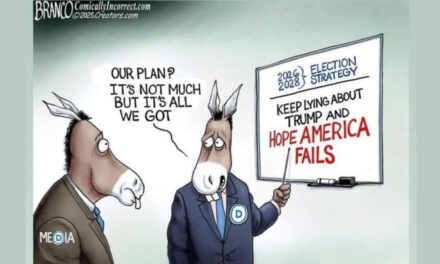
Micro-Aggression Theory: The New Way To Be Racist?
In recent days, issues of racism and prejudice have been front and center. Trump and his administration have been the target for many civil right activists. However, they aren’t alone…
Today, careers and reputations are destroyed when individuals in the spot light are caught making racist remarks (remember Paula Dean and Mel Gibson). But blatant racism is no longer the focal point. In fact, recently micro-aggressions and how white people unknowingly discriminate using these micro-aggressions have been the topic of interest when it comes to prejudice.
The idea of micro-aggression was developed in the 70’s and has been accepted on campuses around the nation. But are the studies on micro-aggression valid and reliable?
According to Merriam Webster, micro-aggression can be defined as follows,
“A comment or action that subtly and often unconsciously or unintentionally expresses a prejudiced attitude toward a member of a marginalized group (such as a racial minority)”
The major issue with micro-aggression is that the individual doesn’t know they are being biased. Allegedly, the person’s underlying bias comes out in an encounter with a POC or minority member. According to some psychologists, people don’t want to believe they are racist or hold negative biases; this leads them to be oblivious to their own prejudiced behavior.
Many good natured individuals have blindly accepted the micro-aggression theory and have implemented policies to reduce the “effects” of micro-aggression on minorities without looking deeper into the research.
Understandably, no one wants to say prejudice doesn’t negatively affect minorities. Nonetheless, a few individuals have voiced their apprehensions on the matter. Psychology professor Scott Lilienfeld of Emory University, George Leef at The James G. Martin Center and The Center for Equal Opportunity’s Althea Nagai have all posed some serious concerns. The majority of the concerns stem from the methodology of these studies. Small group sizes, the reliance on subjective or qualitative data, and leading questions are the main issues addressed.
Those familiar with research know how detrimental one of these issues can be. Yet, many of the micro-aggression studies contain multiple. In order to have sufficient power and to be able to generalize studies’ findings with the population, researchers collect data from large samples. Additionally, in small focus groups people may feel pressured to agree with their peers. Subjective and qualitative data is also harder to analyze statistically and is vulnerable to the researcher’s biases.
Leading questions are also a huge “no no” in research. Althea Nagai clearly stated the issue with biased questions, “After such prompting by the interviewer, respondents would be more likely to find what the research is looking for.”
If researchers ask participants “In what ways have others made you feel ‘put down’ because of your cultural values or communication style?” for example, it may lead participants into telling the researcher what he or she wants to hear instead of finding a real truth.
With sensitive subjects like prejudice many researchers are reluctant to voice a negative opinion or criticism. However, in order to improve research in micro-aggression and psychological research overall we must be open to critiquing all types of research.
Micro-aggression research is not alone in its potential lack of validity and reliability. Most research coming out of the field of social psychology suffers from the same problems. There have been numerous studies which show the risks of using questionnaires and qualitative studies. In general, it is near impossible to replicate real life situations in a laboratory setting.
As research progresses, we will hopefully develop a deeper understanding of social psychology and interpersonal relationships. With larger studies we may be able to better understand attitudes and how they affect others. For the time being, however, we must take qualitative (and quantitative) research findings with a grain of salt. Research finding are only as good as the research itself.
Editor’s note: We are all the product of our environments. America is one of the most diverse countries on the planet, so cultures and personalities are highly varied. My personal opinion is what they are seeing is a cultivated over-sensitivity in the “victim” rather then a problem with the “aggressor.” One cannot expect the world around one to adjust to one’s personal insecurities.
From a political perspective, liberals encourage this (much to the detriment of our students) because it give them a reason to call “racism.”
Much of this stems from the liberal characteristic of “the bigotry of low expectations.” This is the opposite of the “Pygmalion” theory, where one will actually rise to the level of expectations. Which would you rather have in your schools?
























Do not abuse the term Race, Racist, Racialism when you are Anti-Semitic and tell people how to understand how people feel.